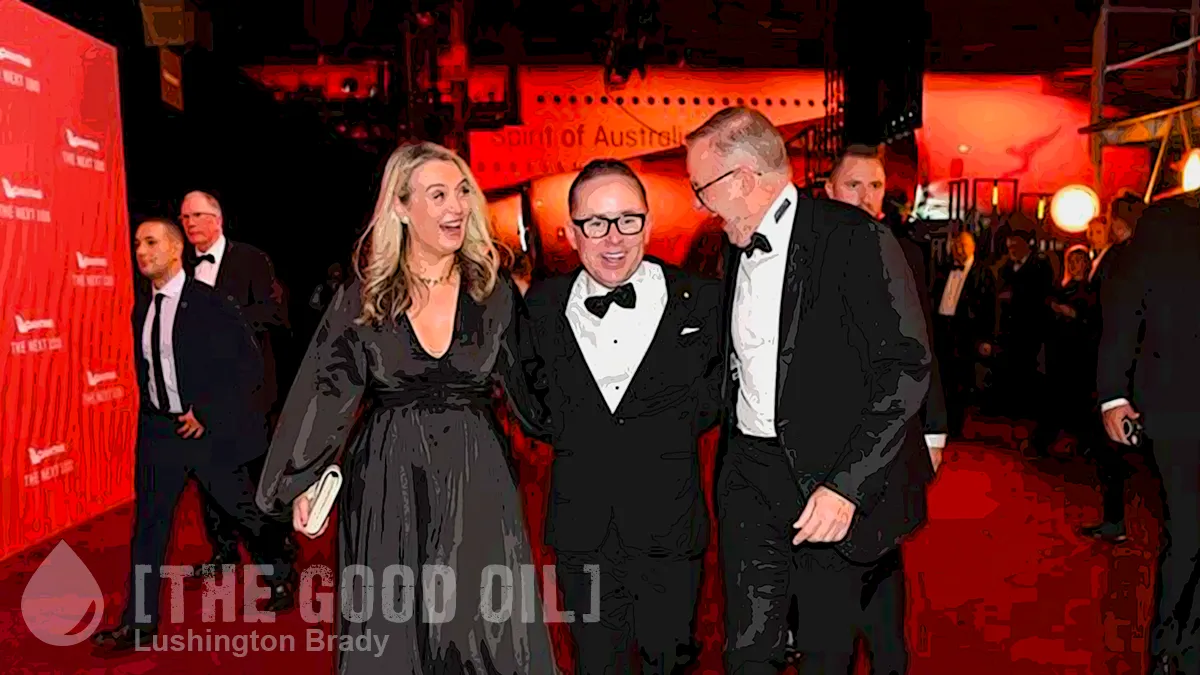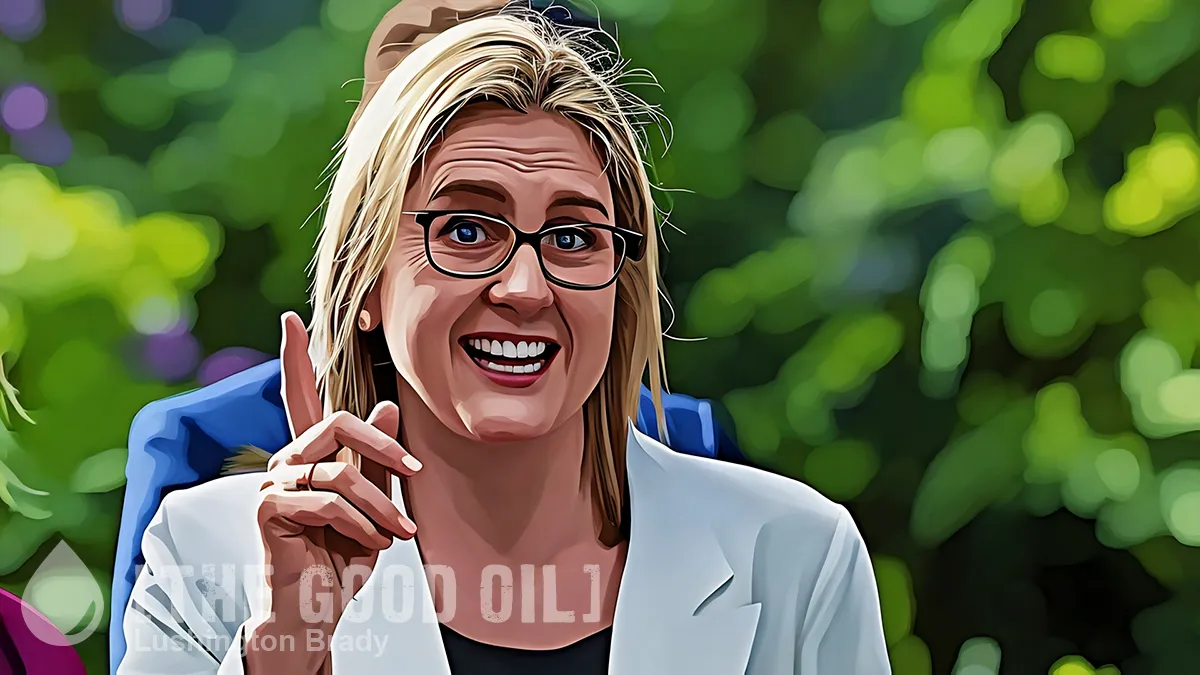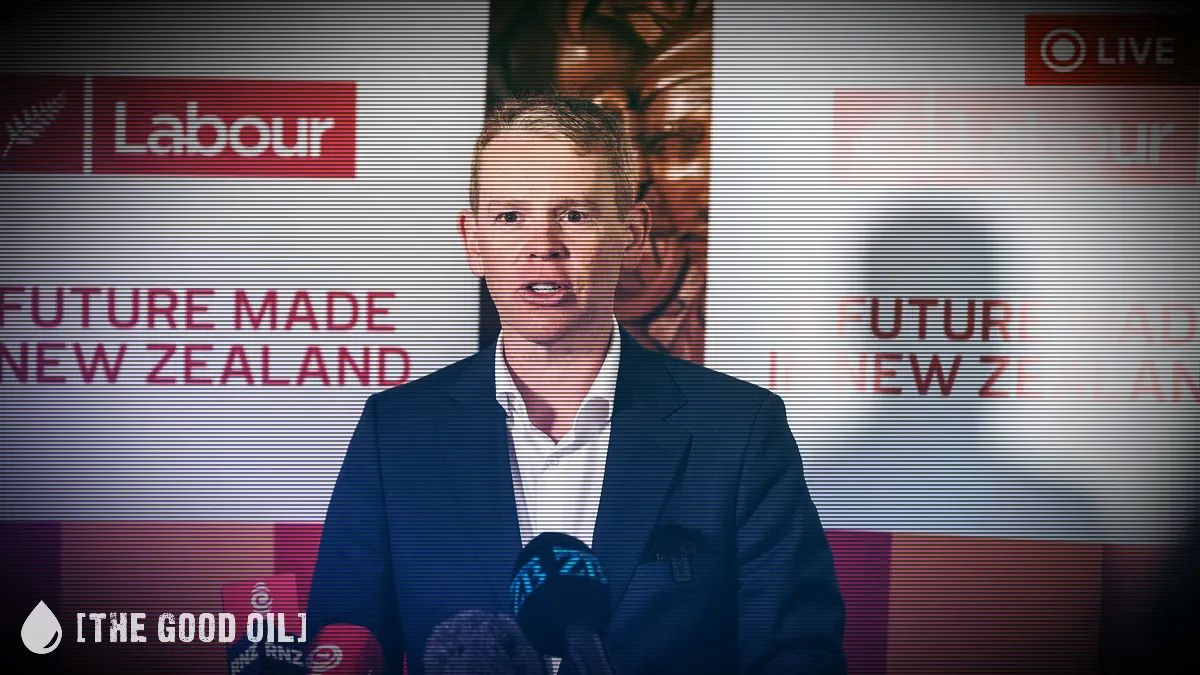Table of Contents
Anthony Albanese’s latest, evasive statement on the Qantas upgrades row is only making things worse for him.
Albanese is proving the adage that ‘explaining is losing’. More to the point, carefully chosen, weasel words don’t fool anybody. Even John Howard, the master of the cautiously lawyerly statement, more often ended up merely stoking people’s suspicions. Small wonder that, at the end of its first term (before the Tampa and 9/11 saved them), his own strategists admitted his government was widely seen as ‘mean, tricky and out-of-touch’.
Albanese is swinging and missing on all three, with no handy global events coming to save his bacon.
Anthony Albanese has ruled out ever having called Alan Joyce to seek a flight upgrade, in a carefully worded statement issued five days after the Prime Minister was embroiled in controversy over whether he used his relationship with the former Qantas chief executive for personal gain and made decisions in government that benefited the airline.
On Wednesday night, Mr Albanese’s office failed to rule out the Prime Minister soliciting upgrades for himself or his family through other means, including via staff or to different contacts at Qantas.
On Thursday, Albanese went on talkback radio to deny that he sought free flight upgrades with anyone at Qantas through any means of communication. Why did it take so long to make such a categorical statement?
The 2GB report also said that Mr Albanese took days to rule out the claims because it took that time to complete an “internal audit” of all of his relevant records.
More cynical folk than me might be inclined to suspect that it rather took time to make sure the fix was in and all tracks covered. But that would be just rank cynicism, I’m sure.
The Australian understands Mr Albanese’s travel has been booked in a range of different ways by various people over his parliamentary career, which spans nearly three decades, and through “normal channels” […]
Sky News reported on Wednesday night that Mr Albanese had a dedicated senior executive at Qantas who handled his flight upgrades. The airline’s then group executive for government and international affairs, Andrew Parker, not only was Mr Albanese’s contact point at Qantas but also was a close acquaintance, Sky News presenter Sharri Markson reported.
Mr Albanese attended Mr Parker’s housewarming and the Qantas executive reportedly had a mock plaque saying it was officially opened by Mr Albanese.
If the PM thinks, though, that he’s put this matter to bed, he’s surely got another think coming.
With Peter Dutton and Coalition MPs demanding the Prime Minister refer himself to the [National Anti-Corruption Commission (NACC)], NDIS Minister Bill Shorten, Social Services Minister Amanda Rishworth and Defence Industry Minister Pat Conroy were asked on Wednesday whether the Prime Minister or someone else should send the flight upgrades for review. None of the three directly responded.
As the Senate considers an inquiry into the Prime Minister’s dealings with Qantas, independent ACT senator David Pocock questioned the Prime Minister’s office’s statement.
One thing’s for sure: Albanese can thank his lucky stars he’s PM, not premier of NSW. If he was, his career would be over. NSW’s Independent Commission Against Corruption (ICAC) is a predatory beast that has devoured many high-flying political careers with less provocation. Barry O’Farrell was forced to resign over a bottle of wine; Gladys Berejiklian for secretly banging a corrupt politician doing grubby land deals.
Albanese’s very own National Anti-Corruption Commission (NCAC) is a far more toothless dog than that. By design, it appears.
Ultimately it might not save his bacon, but it will certainly give him a better chance of surviving than he would under the publicity-obsessed Independent Commission Against Corruption in NSW.
Even if, ultimately, Albanese is able to argue that he did not breach the code of conduct for federal ministers – “Ministers … must not seek or encourage any form of gift in their personal capacity” – the perception of corruption would still lurk. And that’s all the NSW ICAC would need.
ICAC, but not the NACC, is empowered to declare that breaches of the ministerial code amount to corruption, regardless of whether there was any pecuniary benefit.
But there are traps in the NACC which might still spring: the NACC can consider “not just the conduct of public officials, but those in the private sector who might have been involved in any impugned conduct”.
Further:
The National Anti-Corruption Commission Act extends not just to conduct that has been found to have an adverse effect on the impartial exercise of a public official’s powers.
Corruption also includes conduct that, in the view of the NACC, “could” have such an effect. The mere possibility is enough.
Significantly, corrupt conduct under the NACC Act also includes any conduct by any public official that constitutes a breach of public trust.
Moreover, recent case law has enforced the view that the burden of public trust on politicians becomes stronger the higher the office. What a backbencher might get away with, a minister or prime minister may well not.
Whatever happens, there’s certain to be some sleepless nights ahead at the Lodge.








